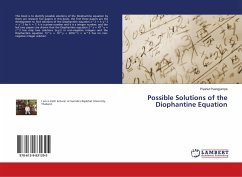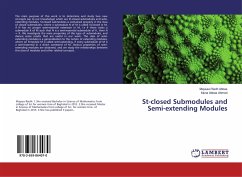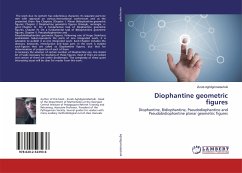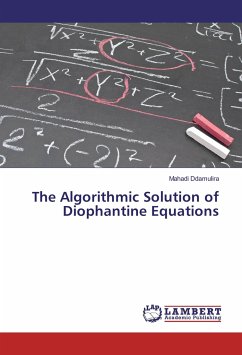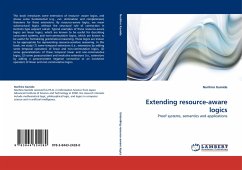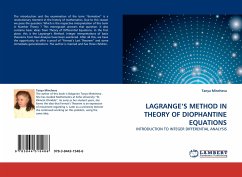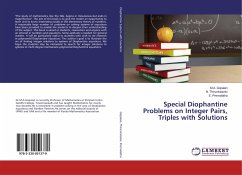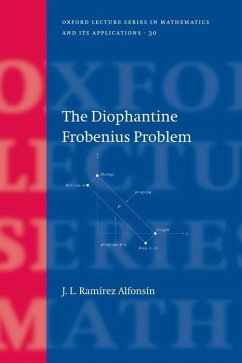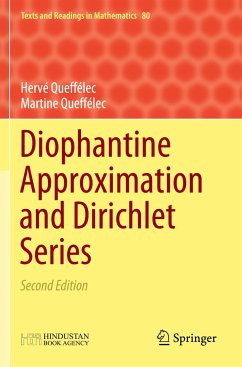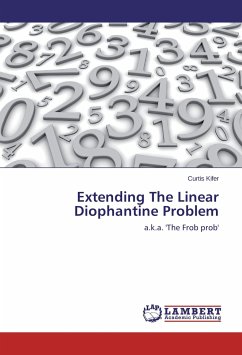
Extending The Linear Diophantine Problem
a.k.a. 'The Frob prob'
Versandkostenfrei!
Versandfertig in 6-10 Tagen
32,99 €
inkl. MwSt.

PAYBACK Punkte
16 °P sammeln!
Given integer-valued relatively prime `coins' a1; a2; :::; ak, the Frobenius number is the largest integer n such that the linear diophantine equation a1m1 + a2m2 + ::: + akmk = n has no solution in non-negative integers m1;m2; :::;mk. We denote by g(a1; :::; ak) the largest integer value not attainable by this coin system. That is to say that any integer x greater than the Frobenius number g(a1; :::; ak) has a representation x = a1x1 + a2x2 + ::: + akxk by a1; a2; :::; ak for some non-negative integers x1; x2; :::; xk. We say x is representable by a1; a2; :::; ak. While it is obvious that the...
Given integer-valued relatively prime `coins' a1; a2; :::; ak, the Frobenius number is the largest integer n such that the linear diophantine equation a1m1 + a2m2 + ::: + akmk = n has no solution in non-negative integers m1;m2; :::;mk. We denote by g(a1; :::; ak) the largest integer value not attainable by this coin system. That is to say that any integer x greater than the Frobenius number g(a1; :::; ak) has a representation x = a1x1 + a2x2 + ::: + akxk by a1; a2; :::; ak for some non-negative integers x1; x2; :::; xk. We say x is representable by a1; a2; :::; ak. While it is obvious that there are representable positive integers and non-representable positive integers, must there be a largest non-representable integer? Maybe there are indefinitely large non-representable integers for a1; a2; :::; ak with gcd (a1; a2; :::; ak) = 1. This notion of whether or not the Frobenius number is well-defined will be the first bit of mathematics we look at in this paper. Proposition 1.1. The Frobenius number g(a1; :::; ak) is well-defined. Proof. Given a1; a2; :::; ak with gcd (a1; a2; :::; ak) = 1, the extended Euclidean algorithm gives that there exist m1;m2; :::;mk 2 Z such that...



